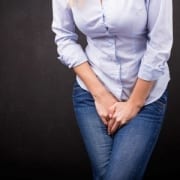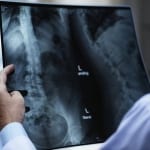Q&A: Do women who have never had children experience incontinence with or after menopause?
Q: Do women who have never had children experience incontinence with or after menopause? There are estrogen receptors on muscles, including the bladder, so if a woman never had a child – and therefore never stretched out her pelvic floor – would she still have incontinence because she has so little estrogen?
A: Thank you for your great question. Women who never have given birth, can and do experience urinary incontinence peri or post-menopause. It is true that over time, our bodies become depleted of estrogen. However, low estrogen is not the only factor contributing to incontinence.
Good hormonal health is a balance of estrogen, progesterone, and testosterone. The onset of urinary incontinence can be attributed to an accumulation of many issues: A history of urinary tract infections, obesity, constipation, hormonal imbalance, high-stress lifestyle, overactive abdominals, sedentary lifestyle, abdominal, pelvic, low back, hip surgical procedures, certain medications, gradual pelvic floor weakness. This list is not complete, but you get the picture. The reasons for incontinence are multiple; a “stretched-out” pelvic floor or not, is only one consideration.
Thanks!
Jeanne Scheele, PT, PRPC
Related:









Leave a Reply
Want to join the discussion?Feel free to contribute!